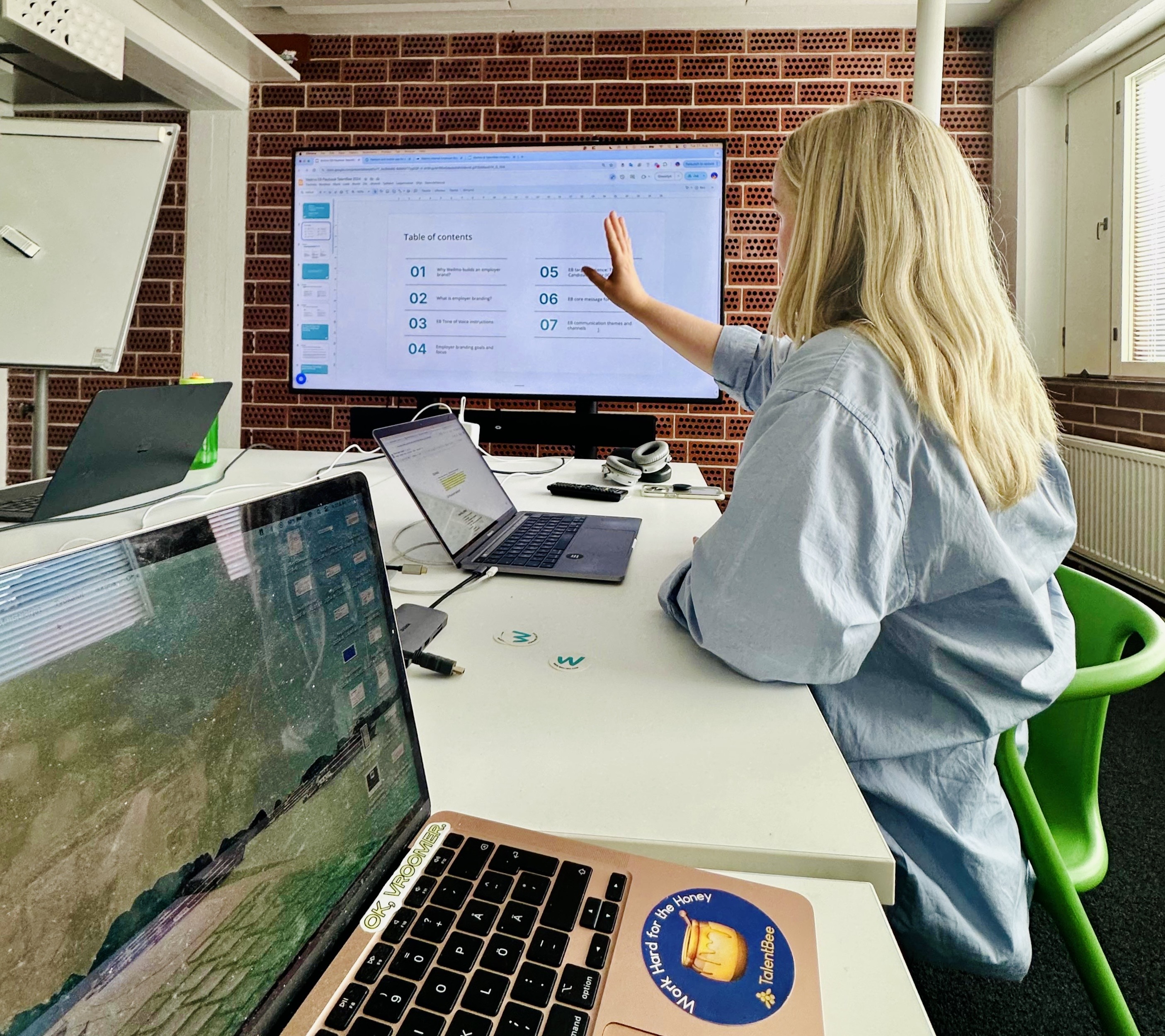Einstein once said: "Insanity Is Doing the Same Thing Over and Over Again and Expecting Different Results."
For years, sales and marketing have been developing innovations to improve results, but the talent industry: recruitment and employer branding are lagging behind.
One of the main reasons we decided to launch TalentBee was to create better results in talent acquisition for our customers & for ourselves.
Talent acquisition is difficult, but does it really need to be that difficult? For years, sales and marketing have been developing innovations to improve results, but the talent industry: recruitment and employer branding are lagging behind.
This means that we need to do things differently, create innovations – try new things!
And if we want to develop the industry with our team at TalentBee, we need to create a Culture of Experimentation.
Creating a culture of experimentation
How to figure out which old ways in the talent industry are working, and what should be changed?
We started the journey of changing the talent industry by researching the talent market & talking with a lot of people in the industry about the things that are working already.
Investing in your brand pays off in the talent sector, too.
Here's a list we found out:
1) Just like marketing and sales, investing in your brand pays off in the talent sector, too. Still, not that many companies invest in employer branding.
2) Combining recruitment & employer branding works.
3) Doing recruitment with a long-term and strategic approach beats ad hoc recruitment.
4) Creating a good candidate experience is crucial in this market.
Since we knew this kind of a thing works based on data & stories, we decided to start doing all of these.
But these are things that actually some recruitment agencies are doing already. Are we really different?
But these are things that actually some recruitment agencies are doing already. Are we really different? I believe that creating a strong culture of experimentation will make us sustainably different and keep us ahead of the curve.
What's essential when creating a Culture of Experimentation?
You gotta accept that there will be a lot of fuck-ups.
If you want to create a thriving culture of experimentation, there are a few things to keep in mind:
1) You have to accept that there will be a lot of fuck-ups. When trying many new things, you must understand they fail most of the time. If you react badly to failures – a culture of experimentation isn't for you.
2) Talk out loud to your staff that it's typical that most experiments will fail. If you don't fail, you don't try enough new things. My own rule is that a 9/10 test should fail. If they succeed at a higher rate, I'm not testing enough.
3) Set clear goals: The goal of an experiment isn't to be successful - The goal is to test whether it works and get data. Finding out that it doesn't is also super valuable.
4) You need to measure things to see whether it makes sense.
5) Make sure your leadership shows an example. Talk about your experiments. Talk about your failures.
Here's how to prioritize what to experiment
Testing just random things doesn't make sense. We would recommend creating a clear structure for experimenting things.
There are various tools for prioritizing. You can use PIE, ICE, or PXL. (Worth checking CXL's article about the topic if you want to learn more)
The big idea behind all of these is to think:
1) How much effort does it take to do this test?
2) What's the upside of this thing if it succeeds?
We typically prefer to focus on testing things with:
1) Small effort
2) Big possible upside.
A few examples of things we are currently testing
Even when it has become "a thing" – candidate experience generally still sucks. How we can make recruitment more about the candidate?
I got this idea and was thinking about how to do recruitment more candidate centric. Sales is nowadays all about the customer and their buying process.
Typically companies share what the next step of recruitment is – and that's it. But what would happen if the candidate could choose the next step?
We decided to try that. Here's how it looks. We show this slide to candidates after the first intro call with us:

This is a good example of an experiment where you find out both good things & bad things.
Good thing: candidates love the idea that they can decide.
Bad thing: This might put different candidates in different positions, which affects our ability to make fair hiring decisions.
Salaries are the reason why people work. Should we make them open?
Our second experiment was to try out publishing our salaries and seeing what happens. We published our salary table for everyone as an experiment. Here it is:

So far, we have got great feedback about this. Some development ideas e.g., should juniors have invoicing goals etc.? We wouldn't have got that kind of feedback without publishing this.
So, I'm not sure whether everything we test is going to be a good idea or not.
Of course we think they will be good. Otherwise, we wouldn't try.








